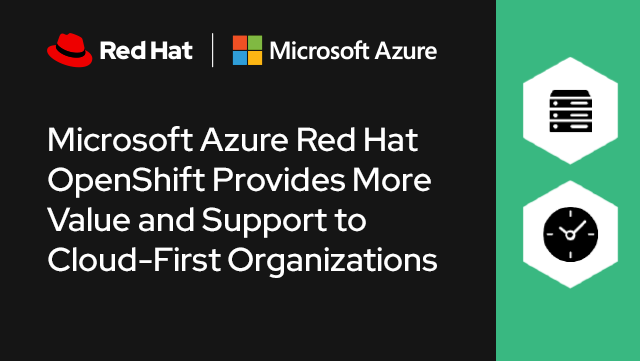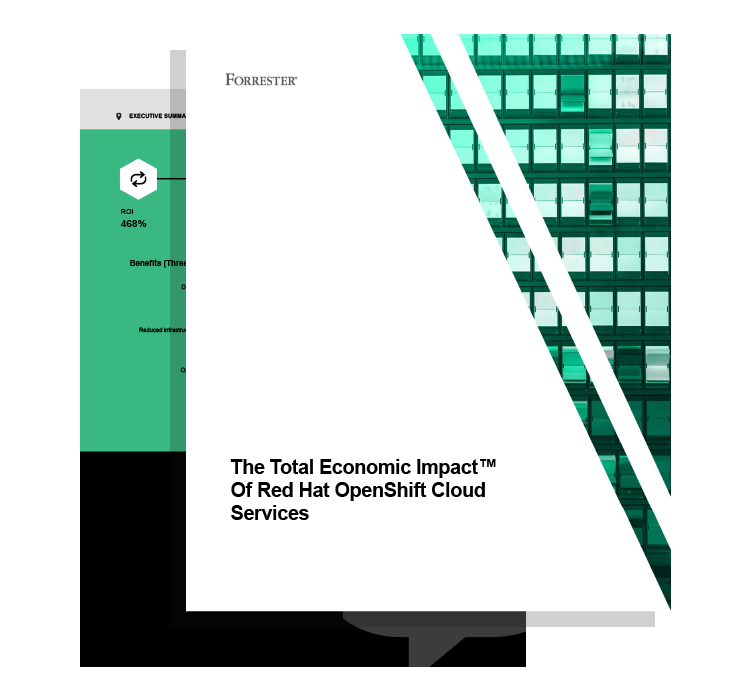Independent study
The Total Economic Impact™ Of Red Hat OpenShift cloud services
Organizations are expected to have the resources, tools, and time to support evolving customer demand, and leaders are looking for solutions to help reach and exceed business goals. This March 2024 commissioned study conducted by Forrester Consulting on behalf of Red Hat explores business cost savings and benefits enabled by Red Hat.
Customer interviews and financial analysis reveals 468% ROI with Red Hat OpenShift cloud services
After gathering customer feedback, Forrester Consulting revealed a 468% return on investment (ROI) resulting in a net present value (NPV) of $4.08M over 3 years for a composite organization – based on quantified benefit, cost, risk, and flexibility factors. Customers are able to build, run, and manage at scale.
Key findings
Improved operational efficiency by 1
50%
Recouped developer time by 2
20%
Shortened development cycle by up to 3
70%
[1] [2] [3] Results are a composite organization representative of interviewed customers
Related assets
Webinar
Explore the financial impact of using Red Hat OpenShift cloud services, including benefits, costs, risk, and flexibility.
Analyst material
Focus on the value of Microsoft Azure Red Hat OpenShift in this spotlight from Forrester Consulting.
Analyst material
Learn about the benefits of Red Hat OpenShift Service on Amazon Web Services in this Forrester Consulting spotlight.
What customers say about Red Hat OpenShift cloud services
“[With Red Hat OpenShift cloud services], business gets features faster. We are more flexible in setting up a new application [or] new models faster because it's less code to get started."
“We can give our engineers a lot of autonomy thanks to the guardrails available in Red Hat OpenShift and we have automated a lot of the human handoffs required between teams which has saved weeks on lead time delays.”
“With Red Hat OpenShift cloud services, we don’t have to create new servers or install anything. We can focus on other things. The workload shifted from doing infrastructure maintenance to supporting application development.”



